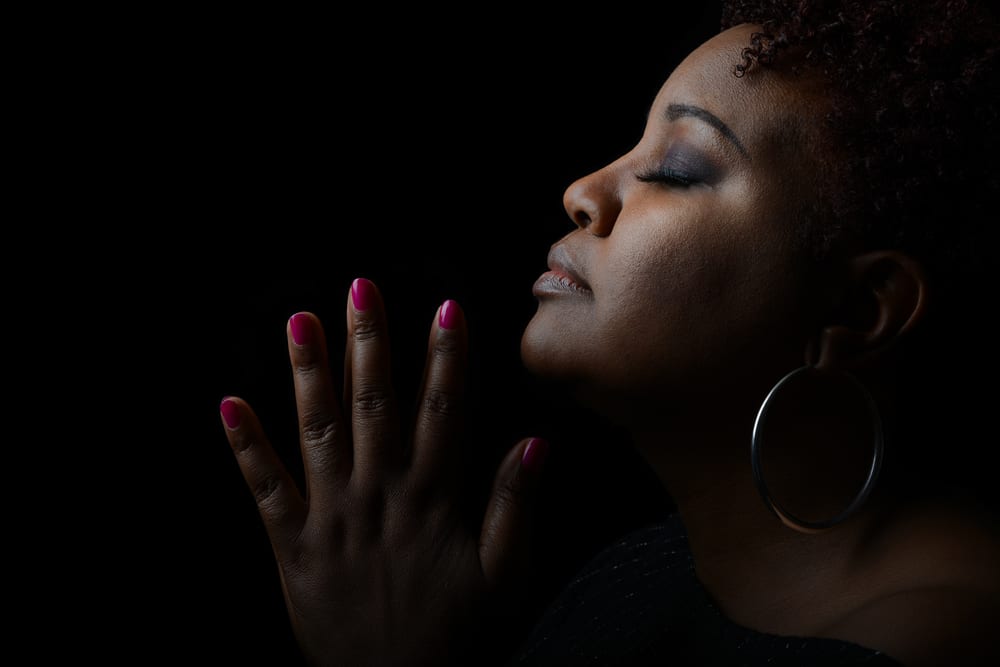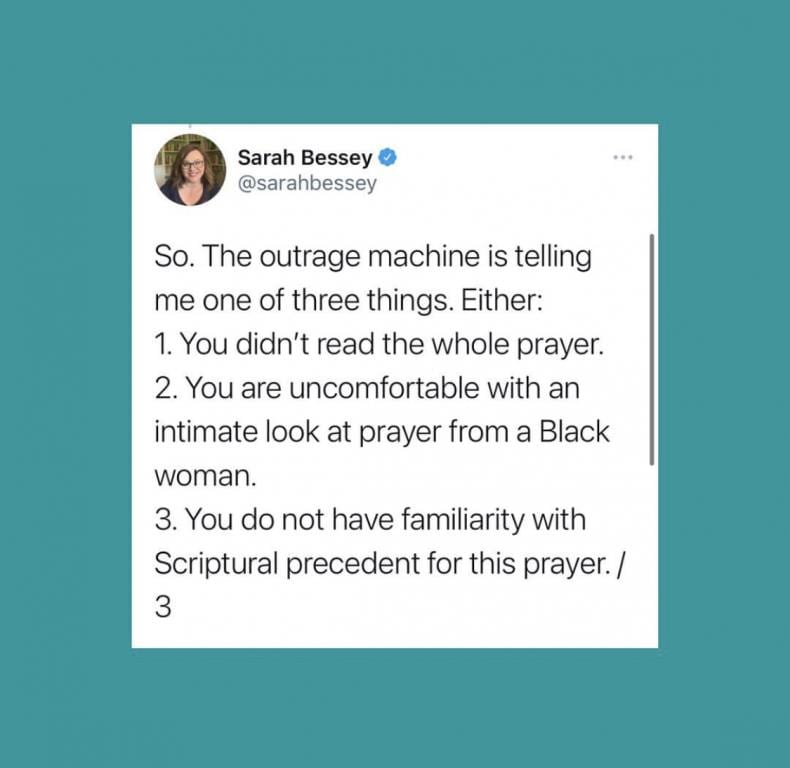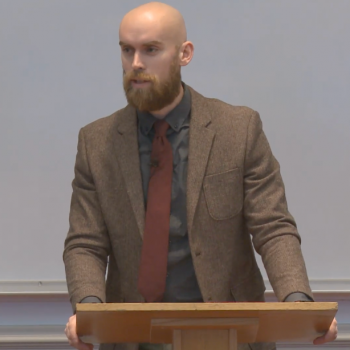Christian author Sarah Bessey is facing backlash over her newest book: A Rhythm of Prayer: A Collection of Meditations for Renewal. The book is an anthology of prayers from several different authors, meant to be uplifting and inspirational.
One of those poems is written by Dr. Chanequa Walker-Barnes and opens with the statement, “Dear God, Please help me to hate White people.”

The rest of the poem, which is available here, elaborates on that sentiment… which is necessary because she says she’s not talking about all white people. Essentially, Walker-Barnes says she doesn’t hate white people fighting racism (they’re great), and she’s not wasting her energy hating blatant racists (they’re lost causes), but she’s asking God to help her get angrier with white people who “claim the progressive label but who are really wolves in sheep’s clothing.” She’s asking for help in focusing her energy where it’s deserved since it’s not always clear they’re the biggest obstacles to equality.
Still, that first line in the poem says, “Dear God, Please help me to hate White people,” and the responses have been swift and furious. Many Christians have called for the book to be pulled from store shelves, and Bessey has temporarily suspended her social media accounts due to harassment and threats.
In an article for Religion News Service, Emily McFarlan Miller writes:
Bessey and other contributors to “A Rhythm of Prayer” responded to what they said has been a “firestorm of harassment, criticism, coordinated attacks, threats, and furor against her and the book” with a statement published Thursday evening (April 8) on Bessey’s website, saying critics are missing the point of the prayer.
“Dr. Walker-Barnes’ prayer is faithful, honest lament, modelled on Scripture. It is a gift of intimacy and vulnerability to the Church and we are grateful to her, not only the prayer, but for her work and her witness in the world,” the statement reads.
…
The author explained on social media that she had written “Prayer of a Weary Black Woman” after a white person she had considered a friend used the “N-word” in casual conversation with her.
“I took my rage to God in prayer. I owned it. I was truthful to God about what I was struggling with. And I prayed for God not to let anger and hatred overwhelm me,” Walker-Barnes tweeted.
While that sentiment is understandable, even in context, it’s hard to square that interpretation with a genuine sentiment asking God to help her “hate” anyone. Even many allies would suggest that language doesn’t help convey the point she’s trying to make. Then again, it’s also an honest sentiment from the author’s perspective, and defenders could easily say it’s not a poet’s job to control how her words are received by people who aren’t understanding the broader context.
On her now-privatized Instagram account, Bessey added:

The “Scriptural precedent” she’s talking about refers to the Psalms of King David, when he confessed to God that he hated those who hated God and wished for terrible things to befall them. Walker-Barnes is saying she wants help focusing her rage on people who say they oppose racism while contributing to racial inequalities. She adds on her own website:
I didn’t even ask God to take revenge on my enemies as the psalmists often did. I took my anger to God. I owned it. I was truthful to God about what I was struggling with, because I believe that the God who knows us intimately can handle anything we bring. I raged against the different types of White Christians who make the journey toward racial justice so hard.
The language may be harsh, but the idea behind it is understandable from her perspective. There may be a legitimate debate to be had about whether such language helps or harms her own cause. But that’s not the debate conservatives appear to be having on social media, where they seem to be sharing only the beginning of the poem — the first line, really — without getting into the actual meaning of the entire piece.
(Image via Shutterstock)




It’s Moving Day for the Friendly ..."
It’s Moving Day for the Friendly ..."
It’s Moving Day for the Friendly ..."
It’s Moving Day for the Friendly ..."